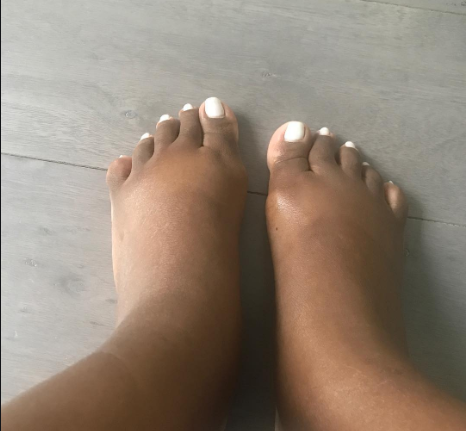
Identifying signs and symptoms of health complications can help save your life or that of a loved one while getting treatment quickly can help prevent life-threatening conditions.
Some discomforts after giving birth are normal, however, it is wise to seek the opinion of your Doctor, before you dismiss anything as normal. This is because some discomforts are borne out of complications that can cause serious, life-threatening health problems.
[ad]
There are certain complications that arise after giving birth to your bundle of joy, however, there are some that could arise while you are pregnant. An example is Preeclampsia.
Preeclampsia is a pregnancy complication characterised by high blood pressure and usually protein in the urine. Preeclampsia usually begins after 20 weeks of pregnancy, with a sudden rise in blood pressure and swelling, mostly in the face, hands, and feet.
A severe case of Preeclampsia can be dangerous to both mother and fetus. Timely diagnosis and treatment could prevent serious complications such as seizures, stroke, and even coma.
Symptoms of Preeclampsia may include:
- Severe headaches
- Temporary loss of vision, blurred vision or light sensitivity
- Shortness of breath, caused by fluid in your lungs
- Nausea or vomiting
- Decreased urine output
- Upper abdominal pain, usually under the ribs on the right side
The more severe your Preeclampsia is or the earlier it occurs in your pregnancy, the greater the risks for you and your baby.
Nevertheless, women who showed no signs of Preeclampsia during pregnancy can develop it within 48 hours after delivery or as late as 6 weeks. This is called Postpartum Preeclampsia.
Several factors could make you vulnerable to this medical condition:
- If you have a family history of Postpartum Preeclampsia
- If you develop Preeclampsia in pregnancy
- If you are pregnant before the age of 20 or after 40
- If you have chronic hypertension
- If you are pregnant with multiple births
- If you are having babies less than 2 years or more than 10 years apart
- If you are obese, or have diabetes or have hypothyroidism
Early detection of Postpartum Preeclampsia, can save the life of the new mother. Postpartum Preeclampsia can be diagnosed through blood tests and urinalysis just like Preeclampsia.
Postpartum Preeclampsia itself opens the door for several other complications such as Postpartum eclampsia, Thromboembolism, Stroke, Pulmonary oedema and HELLP (hemolysis enzyme elevated platelet count).
If you are diagnosed with Postpartum Preeclampsia, your healthcare provider should administer drugs that would control your blood pressure, and keep you under observation for at least 72 hours.
However, there are certain measures the new mother should take for her well being, they include:
- Getting into the right weight bracket even before you plan your pregnancy
- Eating a well-balanced diet. Fruits and veggies rich in antioxidants will help maintain normal blood pressure
- Avoiding certain foods and/or addictives: junk or fatty foods, caffeinated or alcoholic drinks, or smoking
- Staying hydrated with water
- Getting the right exercises done as prescribed by your doctor
- Taking your meds and keeping medical appointments
- Getting the necessary assistance immediately; delegating house chores, and care for the baby.
- This will reduce the pressure on you and help you concentrate on taking care of yourself.
It is important to note that;
- If Postpartum Preeclampsia is not diagnosed and treated on time, it may lead to coma.
- Preeclampsia can lead to the delivery of a premature baby, but Postpartum Preeclampsia affects only the mother. Although, the supply of milk would be low, don’t sweat it. Rather, let the baby get additional nutrients from baby formula.
- If you had Preeclampsia during your pregnancy, there is a chance you can develop Postpartum Preeclampsia and even Hypertension or other cardiovascular diseases later in life.
- Getting prenatal care is one of the most important things you can do to keep yourself healthy during pregnancy. You should schedule your first Antenatal care visit as soon as you know you are pregnant.
- Pay attention to your body after giving birth.
If something doesn’t seem right alert your Doctor immediately, just because you made it through delivery doesn’t mean you are out of danger for health complications.
[ad unit=2]








